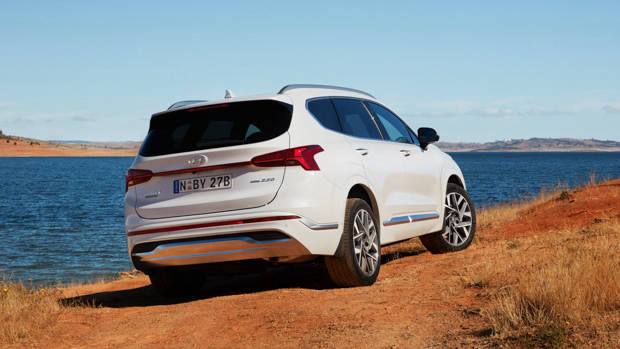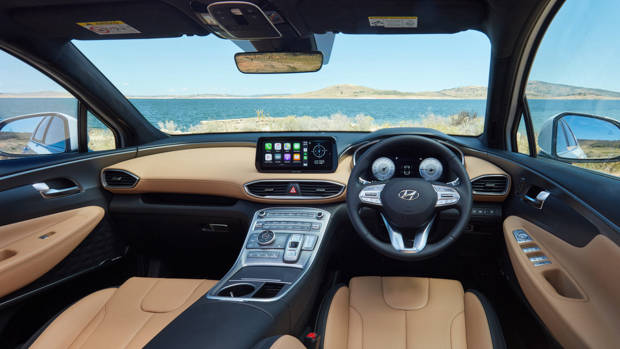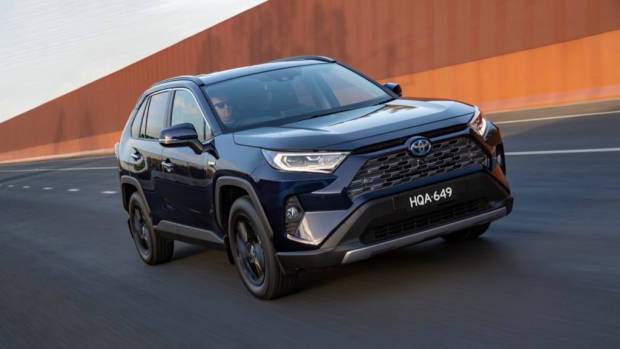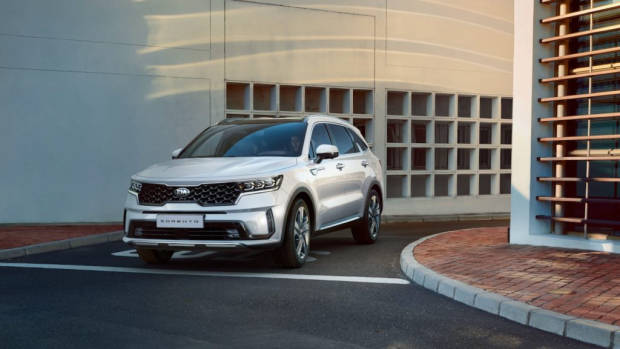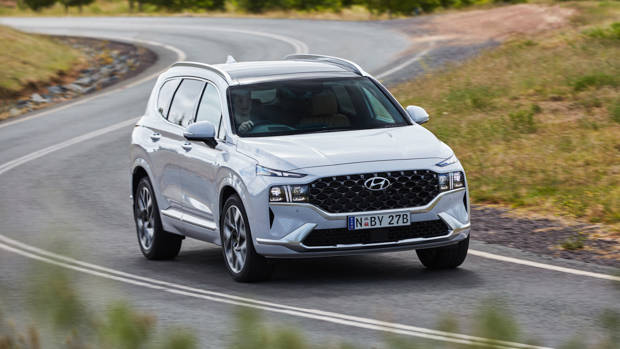-
Car Reviews
- Car News
-
Car Comparisons
Latest comparisons
- Chasing Deals
Hyundai Australia will forego the Santa Fe plug-in hybrid, though a conventional series-parallel hybrid is set to join the SUV range within months.
The 2021 Hyundai Santa Fe large SUV will not be made available with a plug-in hybrid powertrain in the Australian market despite the availability of a Santa Fe PHEV overseas.
Hyundai launched the facelifted version of the Santa Fe late last year, with a traditional self-charging series-parallel Santa Fe hybrid set to arrive in the second half of 2021.
The ‘light’ Santa Fe Hybrid that is coming to Australia works in a similar way to the popular Toyota RAV4 Hybrid, with the vehicle ‘self-charging’ to lower fuel consumption to around 6.5L/100km.
But a plug-in hybrid system goes much further, with drivers able to charge up a dedicated battery from a power socket for short-range all-electric driving.
In the Santa Fe PHEV, you can drive for 40 kilometres on electric-only power using the 13.8kWh battery.
The plug-in hybrid system found in Hyundai Santa Fe uses a 1.6-litre turbocharged four-cylinder engine developing 132kW of power, while the electric motor makes an additional 66.9kW, as well as 304Nm of torque.
When working in combination, the Santa Fe PHEV develops 169kW of power and 350Nm of torque, a number which is likely limited to preserve drivetrain integrity.
The same plug-in hybrid powertrain used in the Santa Fe PHEV will come to Australia within months, but set within the engine bay of the Kia Sorento.
Kia is owned by the Hyundai Motor Group but is distributed separately in Australia. The Kia Sorento and Hyundai Santa Fe share many components, but product planning decisions are made separately for the Australian market.
Hyundai Australia confirmed to Chasing Cars that the series-parallel would be the only hybrid SUV option coming to Australia, with the Hyundai Kona small SUV and Tucson midsize SUV missing out.
The lack of availability of hybrids SUVs is due to Hyundai rushing to meet strict emissions targets in Europe, with the manufacturer facing heavy fines if they do not provide low-C02 producing vehicles.
While the omission of a plug-in hybrid version will be disappointing to some, the decision to bring the ‘self-charging’ Santa Fe hybrid to Australia will likely prove to be more popular with our buyers.
Toyota had tremendous success in selling hybrids in 2020, with the RAV4 ranked as the best selling vehicle in Australia for two months in a row. Two-thirds of all RAV4s sold were fitted with a series-parallel hybrid system.
When it arrives, the 2021 Santa Fe Hybrid will go head to head with the incoming Toyota Kluger Hybrid which will look to replicate the success of the RAV4 with its own series-parallel hybrid system.
The self-charging hybrid in the Santa Fe uses the same 1.6-litre turbocharged petrol four-cylinder engine as the plug-in hybrid, with the engine matched with a 44kW electric motor. The two develop a combined 169kW of power and 350Nm of torque
While official fuel economy figures are not stated, the Santa Fe Hybrid is closely related to Kia Sorento Hybrid which is rated for about 6.3L/100km in the United States.
That figure is almost half of the Santa Fe’s existing petrol engine – a 3.5-litre naturally aspirated V6, which officially consumes 10.5L/100km combined.
Latest news
About Chasing cars
Chasing Cars reviews are 100% independent.
Because we are powered by Budget Direct Insurance, we don’t receive advertising or sales revenue from car manufacturers.
We’re truly independent – giving you Australia’s best car reviews.
